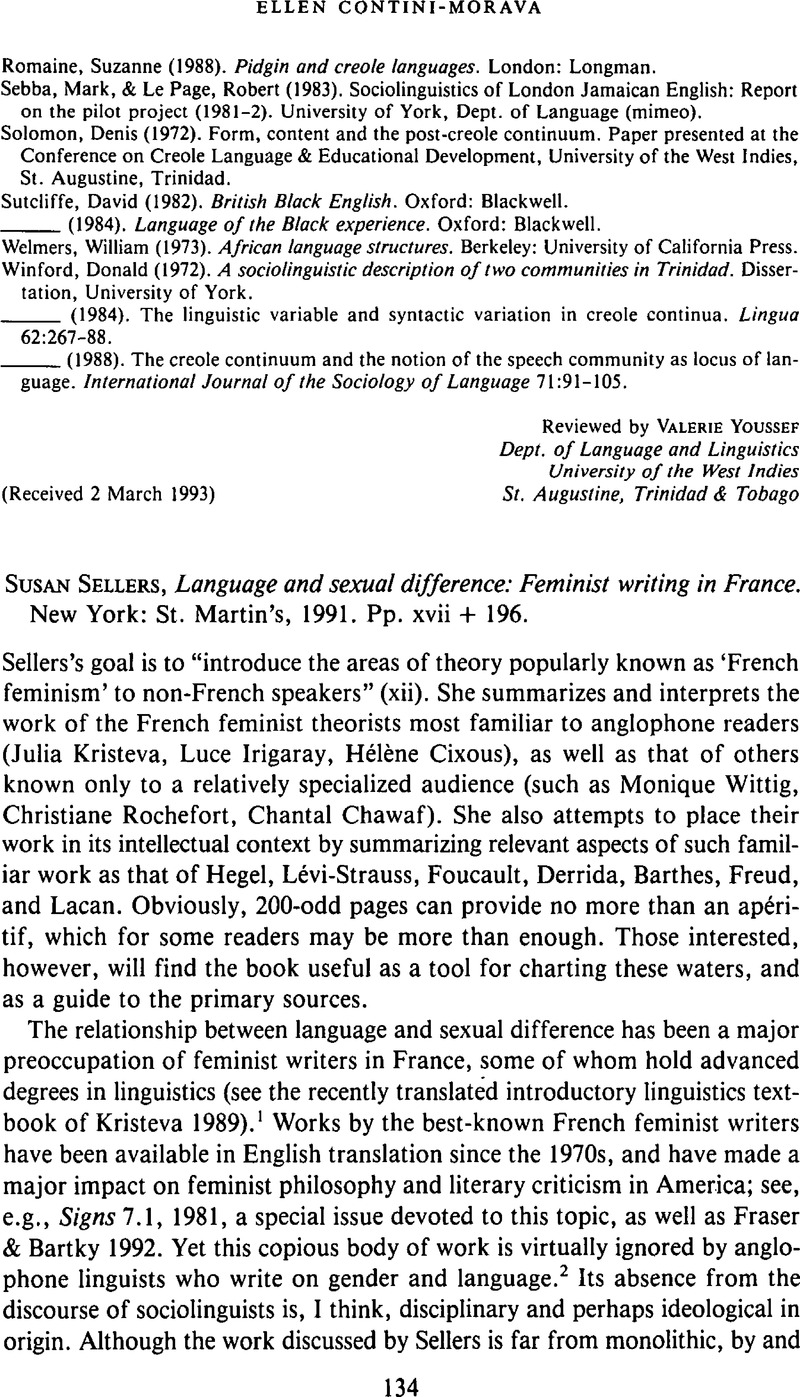Kramarae, Cheris;
Thorne, Barrie; &
Henley, Nancy (
1983). Sex similarities and differences in language, speech, and nonverbal communication: An annotated bibliography. In
Thorne, B.,
Kramarae, C., &
Henley, N. (eds.),
Language, gender, and society.
Rowley, MA:
Newbury House.
151–
331.
Google Scholar 